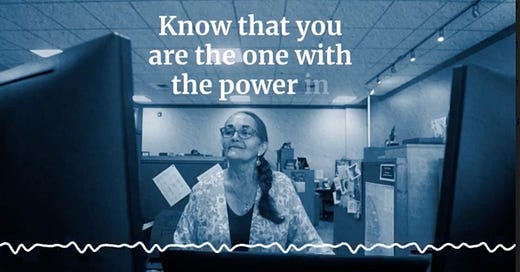
Defining moments in society are sometimes clear and easy to pinpoint, from election nights to the signing of global agreements. But more often, we’re only able to spot moments of transformative change—moments when we say “enough is enough” and awareness turns to action—with hindsight.
That’s because creating change depends on each of us deciding to act. “Don't think you're powerless. It's people who change policy,” says Gwen Phillips, a Ktunaxa data sovereignty advocate, in her Data Values Voices story.
Across the world, more people than ever are questioning the ways that data shapes their lives. Many governments and organizations are reckoning with the ethical implications of their everyday data decisions. From communities generating their own data to governments and marginalized groups working together to reshape how official statistics reflect the groups’ needs, there are ever more examples that a different approach to data is possible.
Our experience in the Data Values Project has made it obvious that momentum is building to redefine data systems to be equitable and inclusive. Over the last year, the Data Values movement has grown to involve over 350 people across 60 countries. In just a few days, over 150 community activists from 30 countries applied to become a Data Values Advocate. Data Values Digest posts are now read by more than 2,000 people each month since this publication launched just over a year ago.
Put simply, we now know what needs to change. As a community united by a common desire to challenge power structures in data systems, we’ve developed a shared vision for a fairer data future and a pathway to achieving it in the #DataValues Manifesto—which we launched last week. Along with it, we also launched a global Data Values campaign to push for the urgent action required to create a fairer data future. Anyone, anywhere, can join us.
History shows that people—when they can speak up, organize, and engage—can hold their leaders and institutions accountable, pushing them to fulfill their promise to serve the common good. It’s easy to feel powerless in the face of rapid technological change, but we can achieve the #DataValues agenda together.
Each of us must act to create this change. We must advocate for leaders to take up the Data Values Manifesto and shift power to people. And we can each rethink and change our data practices so that they help rather than harm, include rather than exclude. We can urge our organizations and communities to do the same.
I encourage you to make #DataValues your own. Each of us has the power to make this a defining moment for data and development. Together, we can ensure it is.




